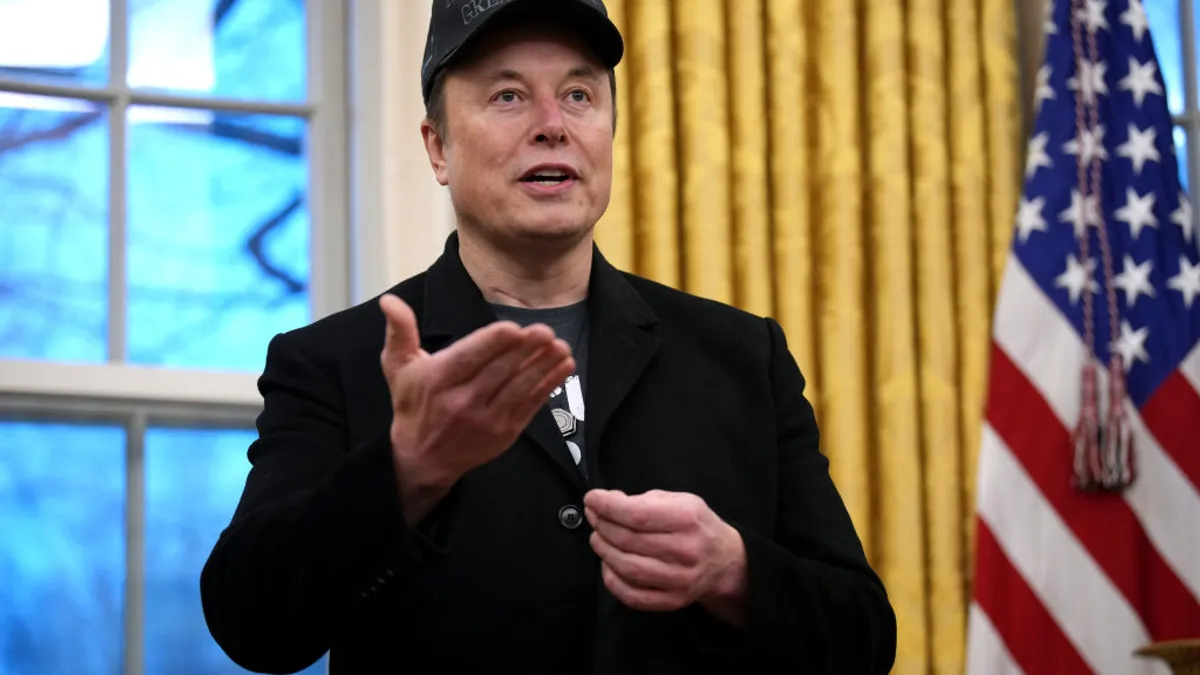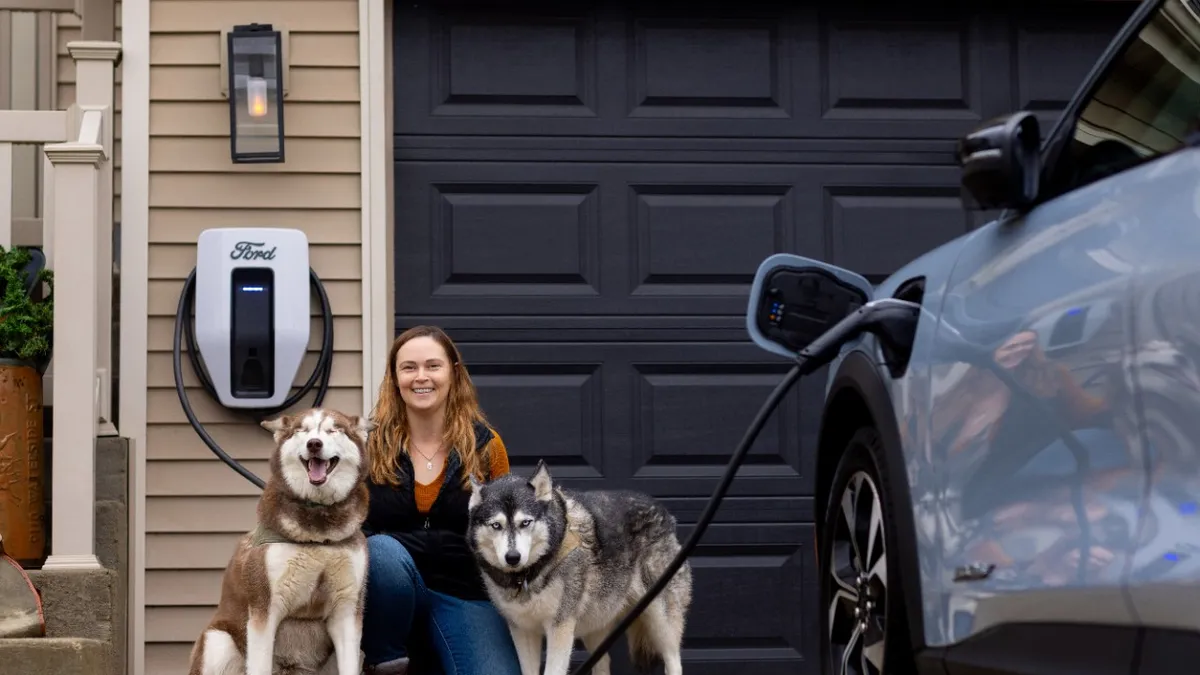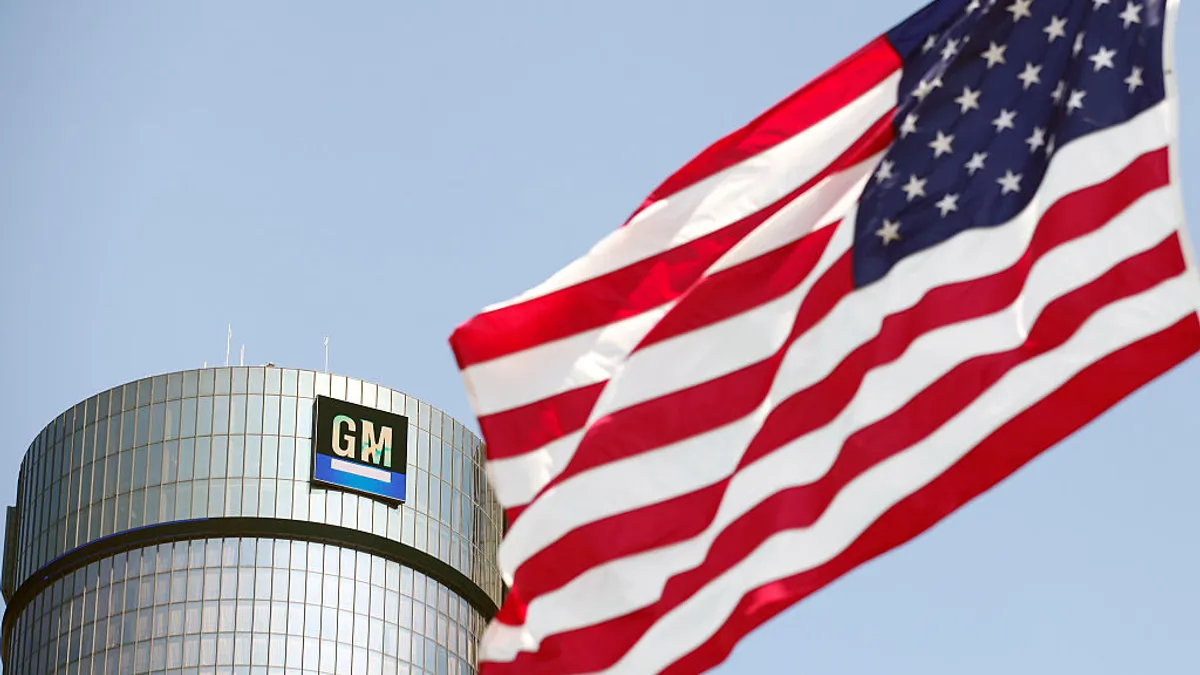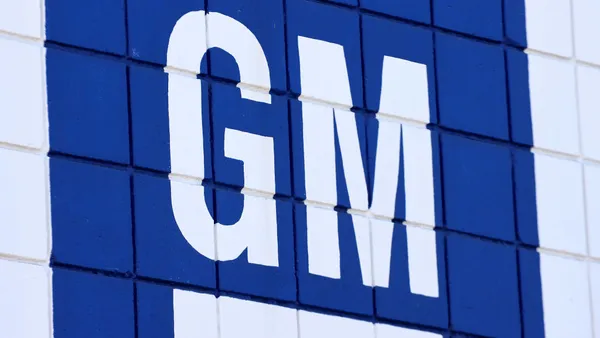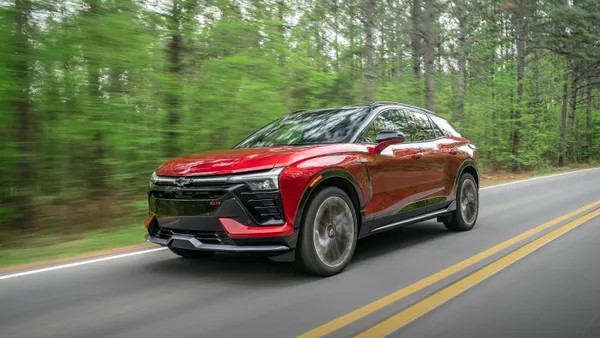Dive Brief:
- Tesla reported a 71% year-over-year decline in Q1 net profit on Tuesday as its automotive revenues cratered.
- The company's net income fell from nearly $1.4 billion to just over $400 million, per the company's earnings report. Automotive revenues fell by a larger sum of $2.4 billion, but the company's total profit figures were buoyed by some gains in its energy division.
- The company cited two factors for its sharp automotive revenue declines: lower vehicle deliveries, which was partly due to retooling efforts to launch the refreshed Model Y across four global factories, as well as reductions in average selling prices.
Dive Insight:
Amid declining revenue, Tesla chief Elon Musk’s position as one of the world’s most high-profile CEOs and face of the brand has also led to consumer backlash. Due to his involvement with the Trump administration as head of the newly created Department of Government Efficiency, some branding experts believe that Musk’s role is beginning to impact Tesla’s core automotive business.
“The last few months have been a lesson in brand messaging and the dangers of tying brands too closely to a founder,” Gabor Schreier, chief creative officer, Saffron Brand Consultants, said in an email to Automotive Dive. “Musk’s actions have had a significant impact on Tesla’s image, bringing it into a new arena and damaging its reputation with customers.”
Tesla also warned of uncertainty in the automotive and energy markets in its earnings report, including rapidly evolving trade policies that are adversely impacting its global supply chain and cost structure. “This dynamic, along with changing political sentiment, could have a meaningful impact on demand for our products in the near-term,” the company wrote.
But Tesla’s revenue declines began last year before Musk’s involvement with the Trump administration as the head of DOGE. The EV maker reported an 8% year-over-year decline in Q4 revenue for its automotive business to close out 2024, while full-year revenue fell by 6% YoY.
Tesla reported that Q1 EV production was down 16% YoY to 362,615 vehicles, while deliveries declined 13%. Tesla’s sagging sales and other economic uncertainties have also spooked investors, leading to roughly a 37% drop in its stock price since January 1 and wiping out hundreds of billion dollars from its market cap.
Musk’s ties to the Trump Administration combined with new U.S. tariffs on imported vehicles could further impact Tesla’s short-term outlook, now that consumers have more EV choices from competitors, including General Motors.
Schrier said the Tesla badge now carries a political message with strong public backlash. “It’s a 180 turnaround from where the brand was at the start of 2024, and it’s hard to disentangle that from the personal profile and impact of Musk,” he said.
Musk said on the call that he will allocate “far more of his time” as Tesla CEO starting in May, as he said most of the major cost-cutting work of DOGE will be complete by then. However, he added that he might still dedicate one or two days per week to DOGE for as long as President Trump needs him and the department’s work is still useful.
Despite Tesla's difficult first quarter, Musk expressed optimism about the company’s future, especially in the areas of robotics and autonomous driving technology, AI, robotaxis, as well as its stationary energy storage business, which is booming with YoY revenue up 67% in Q1.
“I think Tesla will be the most valuable company in the world by far,” Musk said during the call. “It may be as valuable as the next five companies combined. But there'll be a few bumps down the road before that happens.”
Tesla did not share updates on its sales and financial forecast for the remaining three quarters of 2025.



